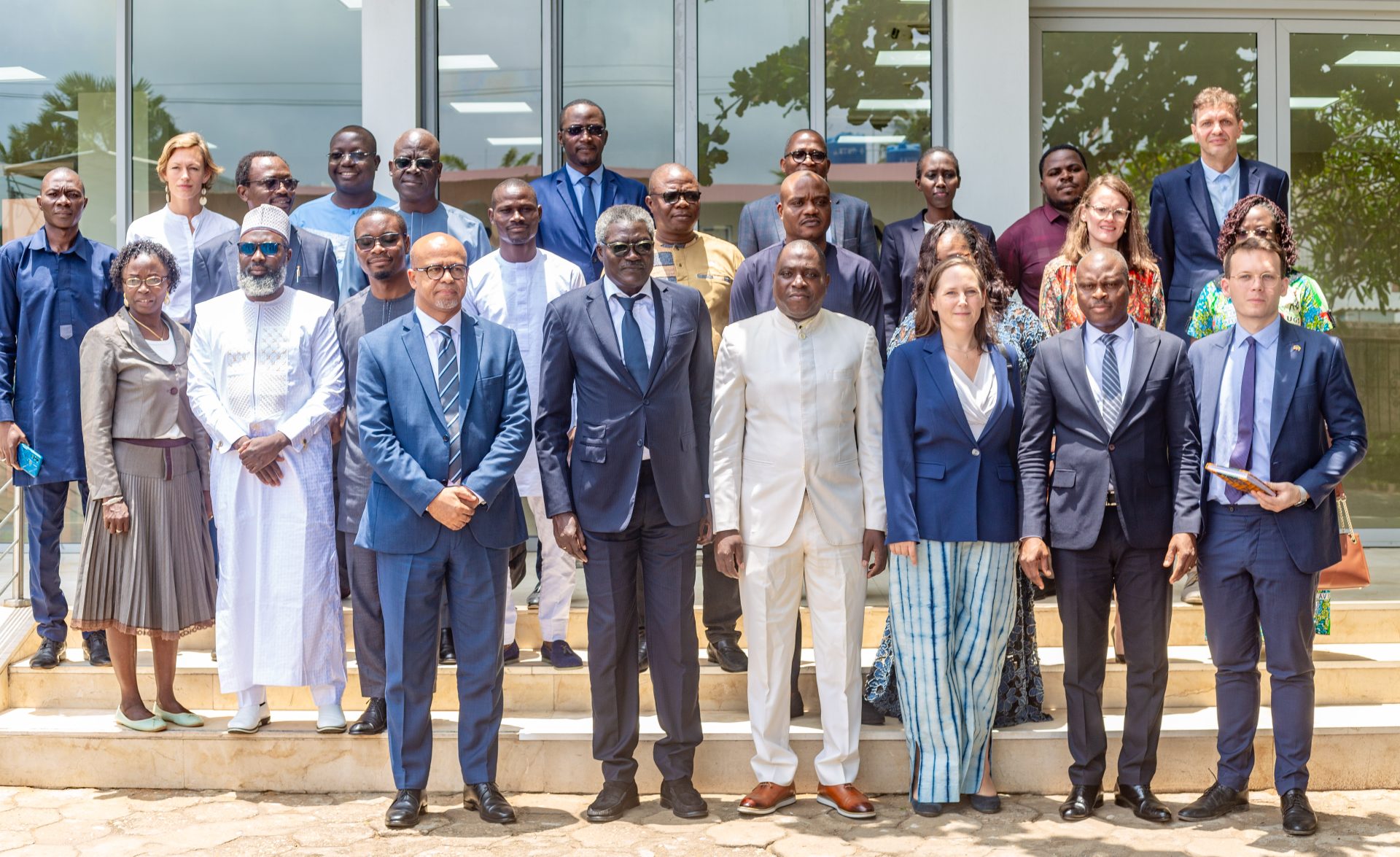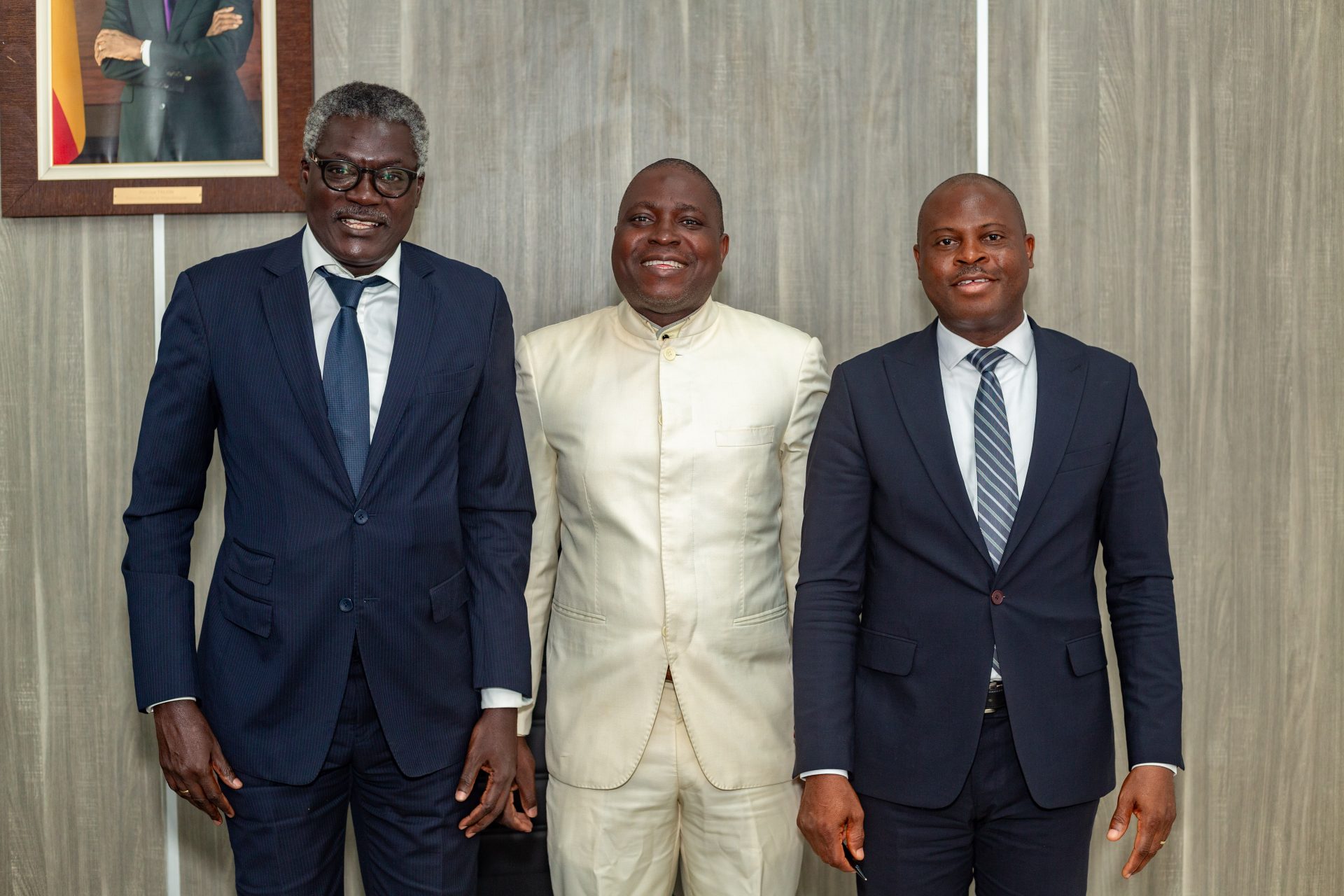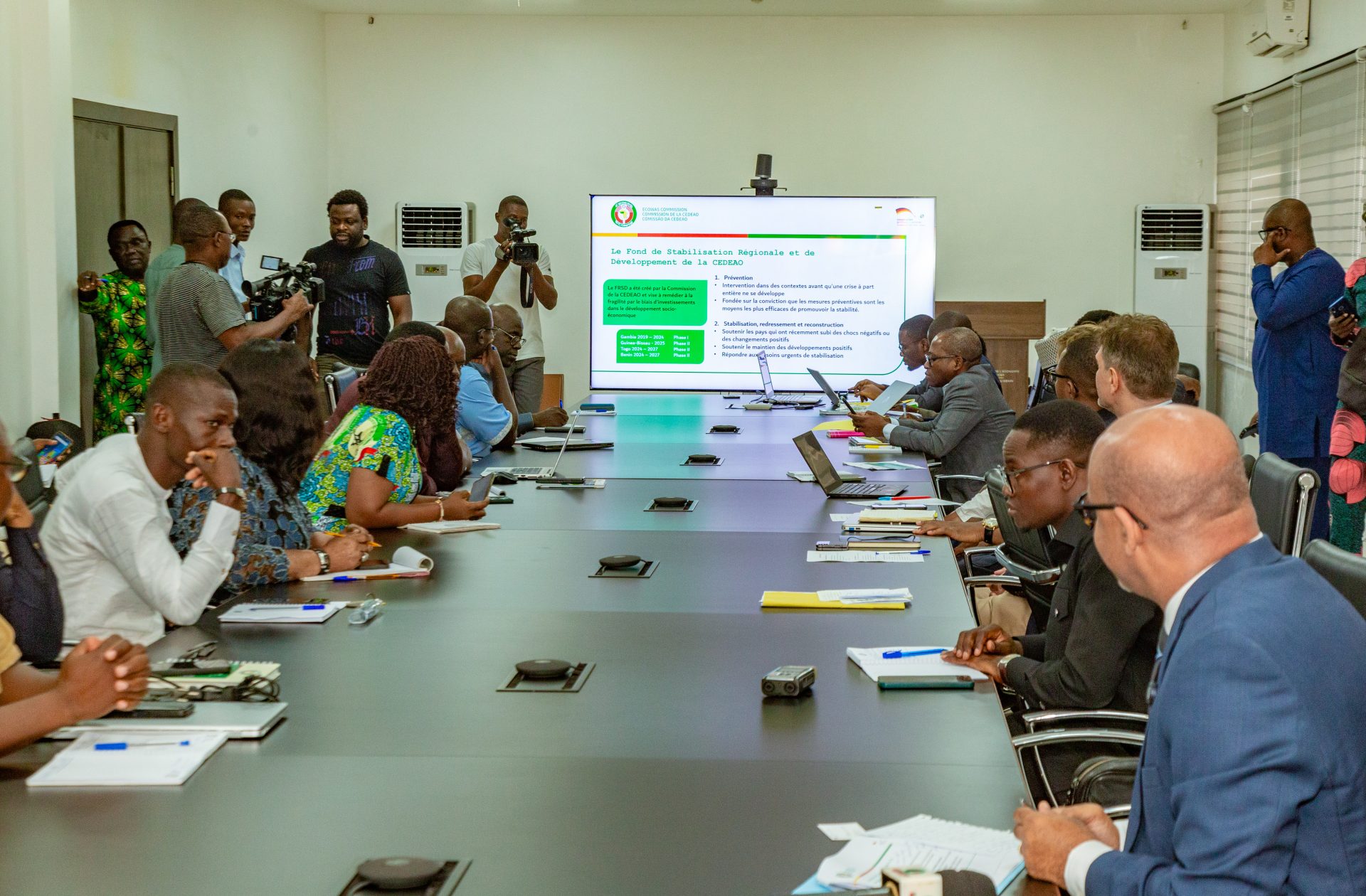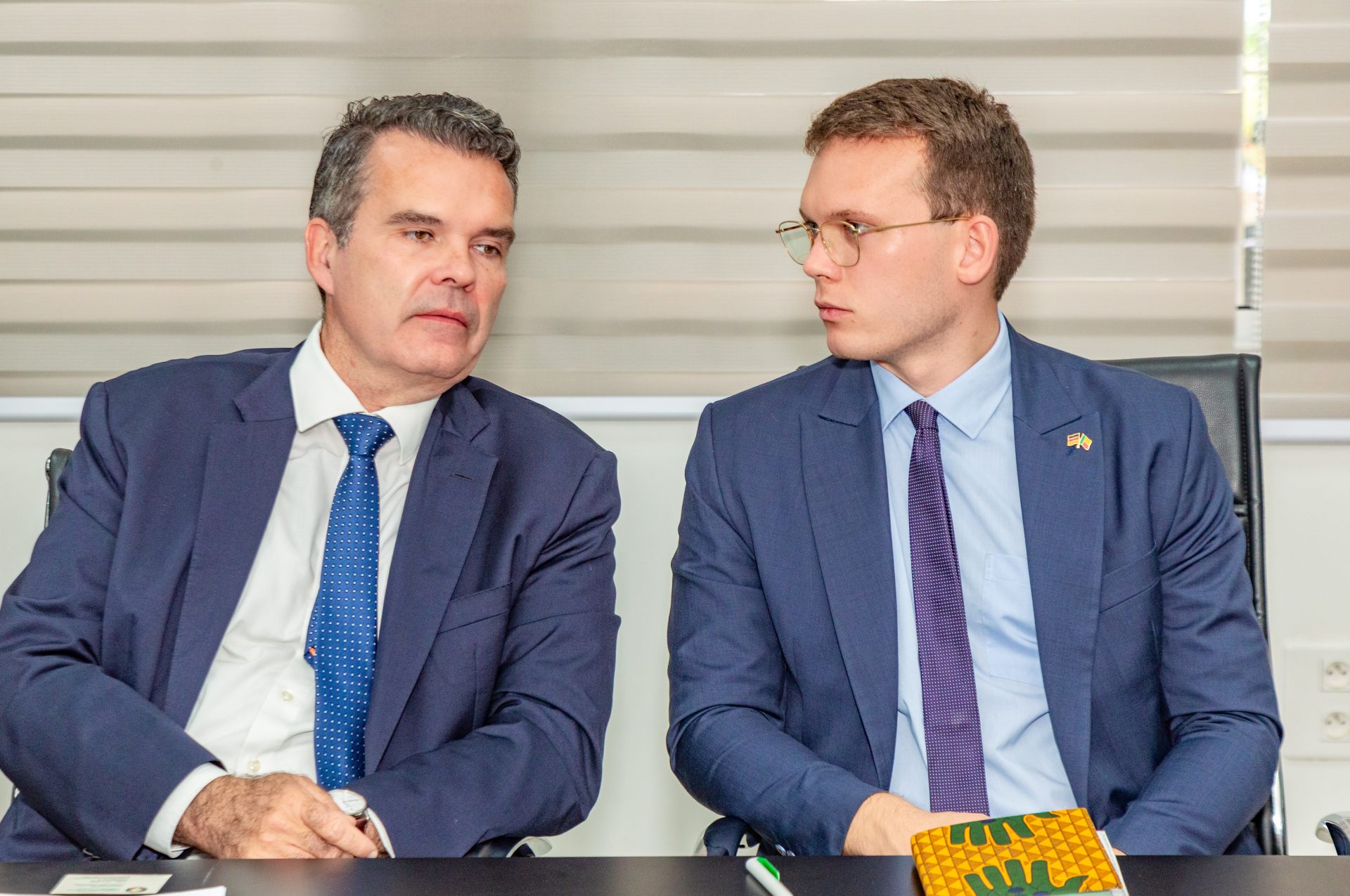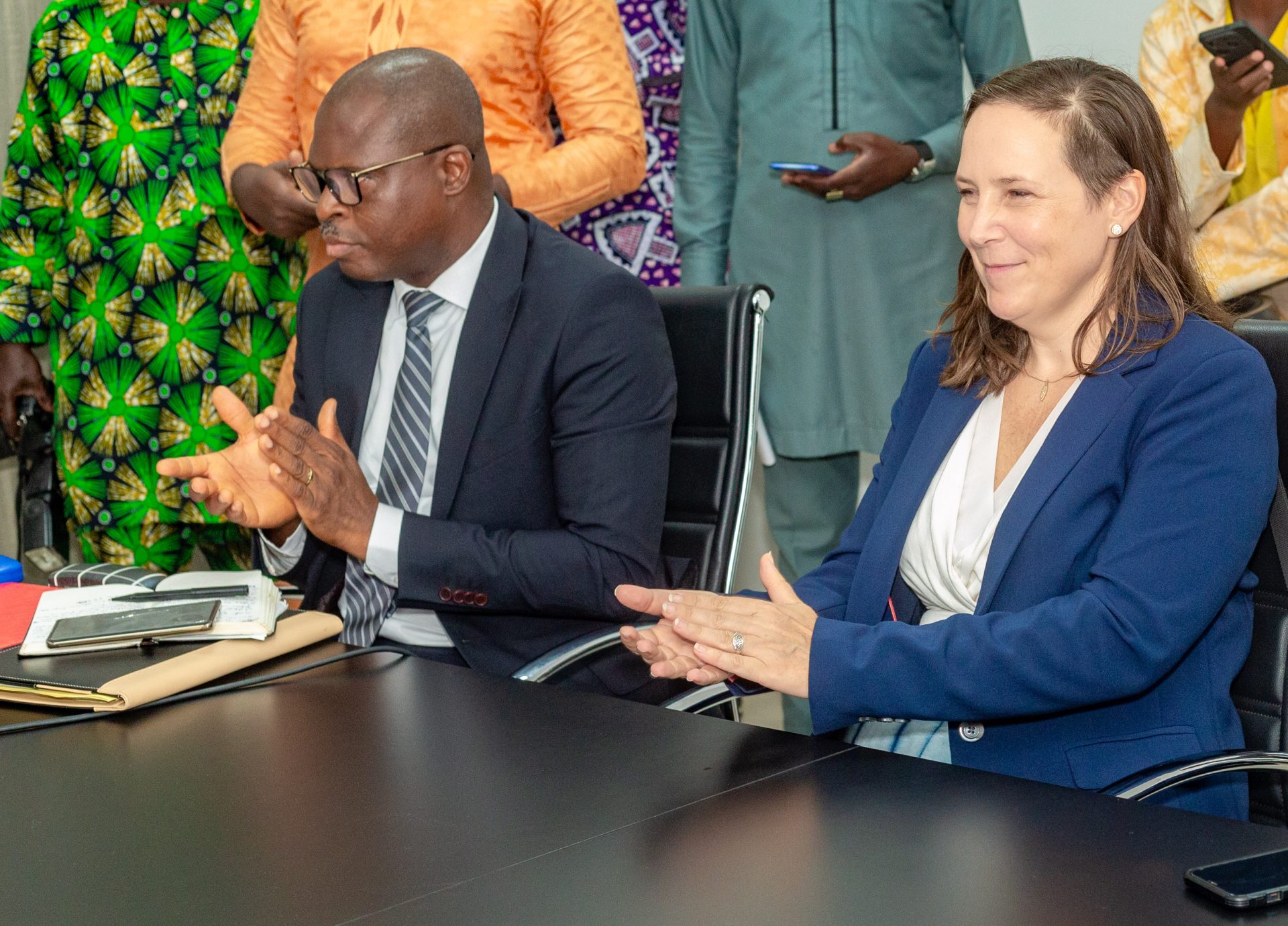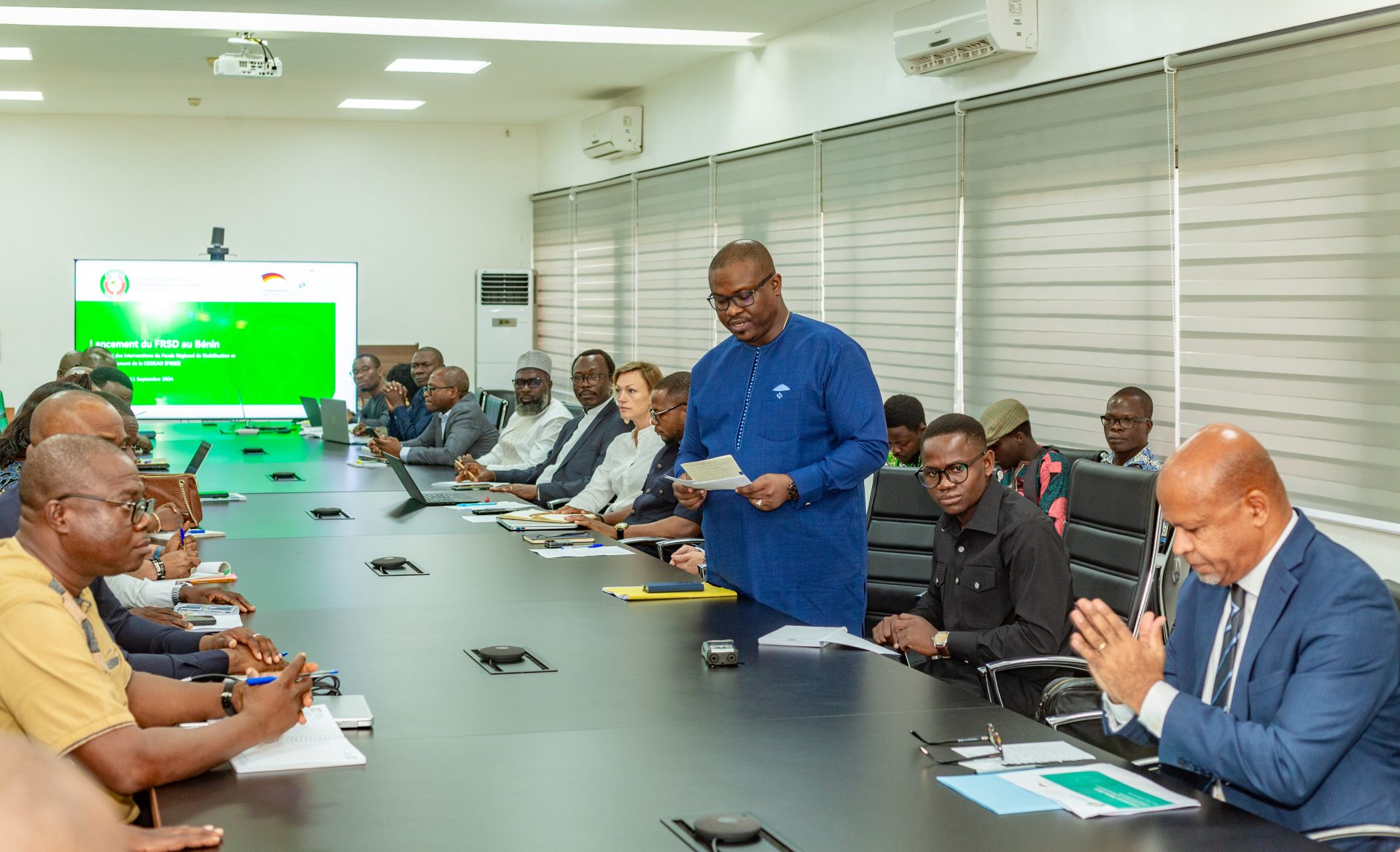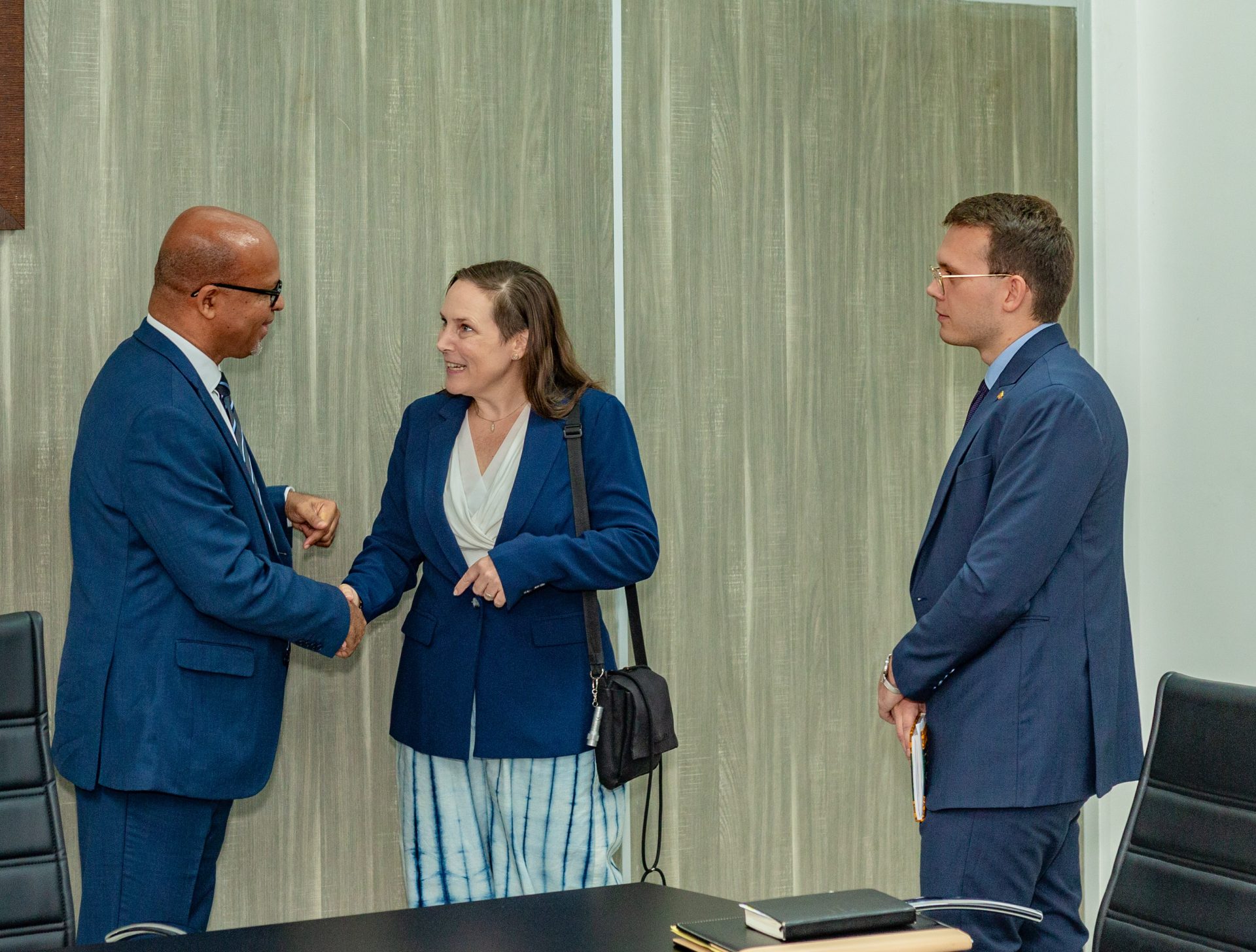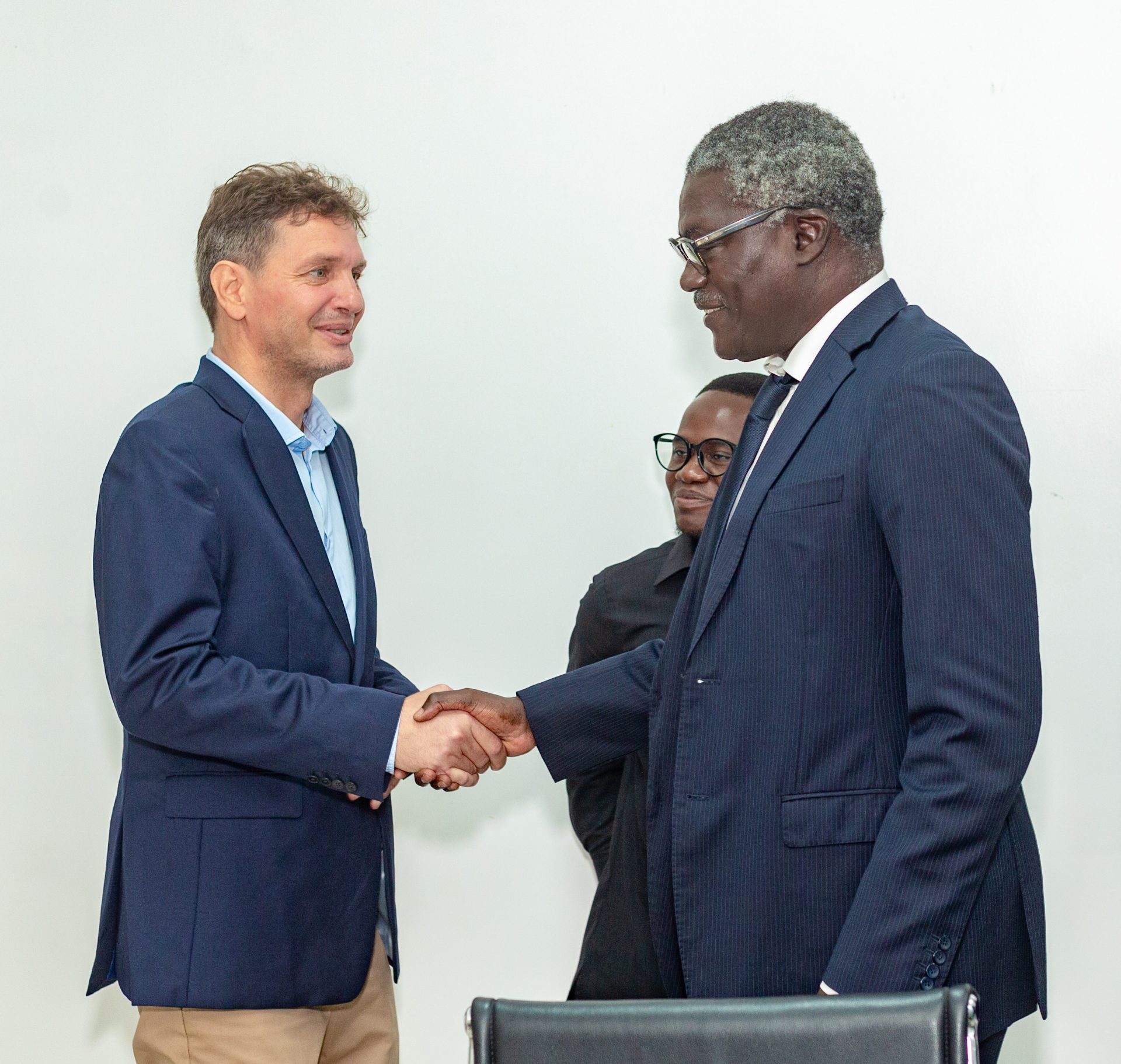ECOWAS Officially Launches the Activities of its Regional Stabilization and Development Fund (RSDF) In Benin
13 Sep, 2024Placed under the coordination of HE Mrs. Damtien TCHINTCHIBIDJA, Vice-President of the ECOWAS Commission, the ECOWAS Regional Stabilization and Development Fund is an initiative supported by the German Federal Ministry for Economic Cooperation and Development (BMZ) to promote socio-economic stabilization and recovery in fragile communities in the ECOWAS region. The launch of the activit2024,of this initiative was made this Wednesday, September 11, 2024 in Cotonou, Benin with the Beninese press in attendance, by Mr. Habib TIDJANI, Technical Advisor to the Minister of State for Finance and Economy of Benin, in the presence of HE Amadou DIONGUE, Resident Representative of ECOWAS in Benin, Mr. Felix KRESS, Cooperation Attaché at the German Embassy, Representatives of GIZ, KFW and national implementing partners.
This launch follows the signing by HE Dr. Omar Alieu TOURAY, President of the ECOWAS Commission and HE Romuald WADAGNI, Minister of State in charge of Economy and Finance of the Republic of Benin of the grant agreement for the direct contribution of ECOWAS to the Regional Stabilization and Development Fund. The financing agreement, which covers an amount of 2 million US dollars intended to finance socio-economic stabilization interventions in the departments of Atacora, Donga and Collines during the 2024-2027 period, represents part of a total financing of 17 million Euros that Benin could obtain as support from the RSDF.
In his speech at the official launch of the RSDF in Benin, H.E. Amadou DIONGUE, on behalf of the President and Vice-President of the ECOWAS Commission, expressed the sub-regional institution’s gratitude to the Government of the Republic of Benin and its Head of State. After giving a brief overview of the current challenges facing ECOWAS, the Resident Representative recalled the history of the RSDF and the reasons behind its creation. “This project clearly shows that the fight against violent extremism is not only a military matter. It is a question of anticipating the establishment of basic socio-economic infrastructure, strengthening the capacities of vulnerable populations to give them hope and implementing governance policies capable of preserving our fragile living together,” he added.
Speaking on behalf of the German Federal Ministry for Economic Cooperation and Development, Mr. Felix KRESS stressed on the availability of his country’s government to support ECOWAS through GIZ and KFW. He ended his remarks with his country’s wish to see the implementation of activities planned under the RSDF accelerated.
Speaking on behalf of Benin’s Minister of State for the Economy and Finance at the official launch of the Fund’s activities, Technical Adviser Habib TIDJANI reviewed the various consultations held by the Government of Benin with local players and stakeholders in the target areas, as well as the steps taken to ensure that the FRSD’s activities are in line with local and national development plans. He also specified that as part of the implementation of this project, “a national advisory committee chaired by the Ministry of Economy and Finance and composed of representatives of several governmental and non-governmental agencies was set up to ensure that the activities of this project reflect national priorities. This project demonstrates the strong partnership between the ECOWAS Commission and the Government of Benin with a view to building a strong region in accordance with Vision 2050 of an ECOWAS of the people.”
After the official launch speech, a brief presentation of the RSDF was made by Mr. Raouf SALAMI, the Executive Assistant to the Vice-President of the ECOWAS Commission. The media was then given the opportunity to probe for clarification.
The Regional Fund for Stabilization and Development is an initiative launched in 2019 by ECOWAS. The first phase of the project was implemented in The Gambia (2019-2024). The second phase, which runs from 2024 to 2027, is being implemented in Benin, Togo and Guinea-Bissau. It mainly covers 3 areas of intervention, namely employment (vocational training, basic infrastructure, promotion of entrepreneurship, etc.), environment (reforestation, irrigation, renewable energy, etc.) and services necessary for social cohesion (sport, media for peace, conflict resolution mechanisms, etc.).
In Benin, this project aims to reach approximately 24,000 beneficiaries. It is implemented in partnership with the Government of Benin, German Cooperation and national partners such as CARE International and VSF-B.



